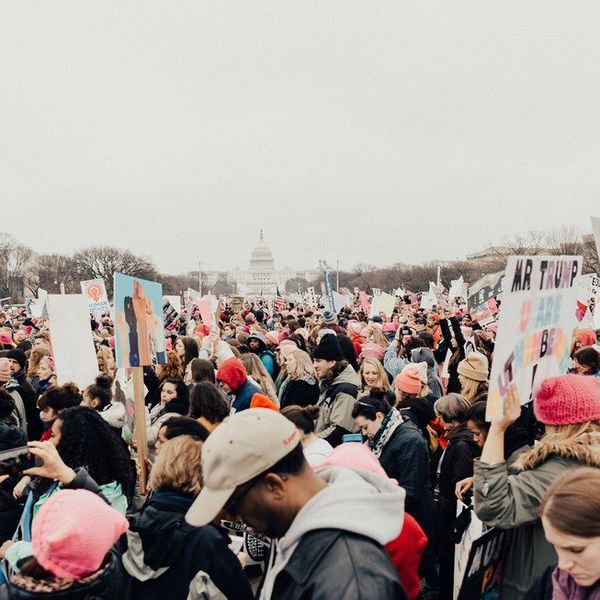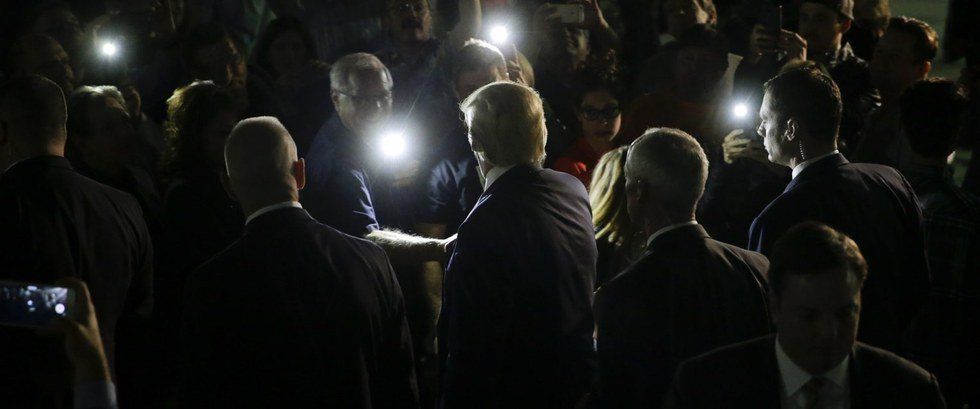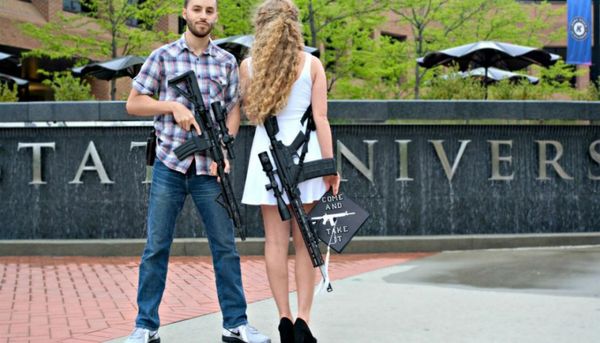It's an unchallenged fact that this presidential election — the crowning glory of the Great 2016 Fiasco — made the ground shake (earthquake) in the political arena, as well as all over the US.
More than ever before, people of all ages have been diving into the political sphere, watching debates, joining marches, (making memes), and are more involved than in recent millennial memory. And now, with the Inauguration, the Nation is facing the culmination of this entire shift.
Controversy is already pummeling the President-Elect (who is no stranger to rumors and headlines both) as performer after performer refuse offers to sing at this weekend's events. This reaction is only a reflection of the division that has occurred in deeper strains of society during the whole course of this election.
On social media, every social circle is seemingly divided sharply between hardcore Republican or die-hard Democrat, with little wiggle room (outside of silence) in between. This election has created a rift in the political system, in this bipartisan political system that has more or less been in effect for over 150 years.
From the very onset of his campaign, Trump threw everything in the face of everyone, upturning tables everywhere in the figurative temple of the United States political system. The "Trump Boom" has even sent structural faults cracking the very foundations of the Republican party.
This unrest begs two huge questions: Is Trump's election breaking up the political wall — and is that a good thing?
According to one Palm Beach Atlantic political buff, Trumps presidency will indeed prove to be restorative because it'll be free of partisanship. (Hear that? Restorative for people of all political affiliations across the entire American front, free from bipartisanism.)
Wes Friese is a Marine Bio major in West Palm Beach, and all six feet, three inches of him are found during weekends out scuba diving with a GoPro, and always ready for a political discussion. Despite having participated in conservative campaigns and openly endorsing Trump, Friese refuses to be identified with the Republican party, convicted that the bipartisan system was never meant to be an intrinsic part of the U.S. politics or government.
He explains, "Democrats and Republicans both have pitted and divided Congress beyond recognition. Both parties have issues with career representatives, with corruption, with platform change, etc."
As President Washington wrote in his Farewell Address, warning posterity against the dangers of the party system. Among other things, Washington wrote, "The unity of government which constitutes you one people [...] is a main pillar in the edifice of your real independence, the support of your tranquility at home, your peace abroad; of your safety; of your prosperity; of that very liberty which you so highly prize." [emphasis added].
It seems as though Washington was writing straight to the 21st Century in addressing the problem of parties.
"It agitates the community with ill-founded jealousies and false alarms, kindles the animosity of one part against another, foments occasionally riot and insurrection. It opens the door to foreign influence and corruption, which finds a facilitated access to the government itself through the channels of party passions. Thus the policy and the will of one country are subjected to the policy and will of another."
To modern America, the fatal aspect of the bipartisan system today lies particularly in special interest groups, the monstrous flaws of which were described by Washington in the same speech.
In upper-level politics, political affiliation is bought and sold, and donors garner support from congressmen and career politicians in order to further their causes either in business or personal advancement. Current politics could not be less "for the people" than they are right now. This is the principle reason, free from all conservative agenda or affiliation, why Trump's presidency may have potential to bring good to the nation.
Wes Friese supports this line of reasoning by explaining, "Donald Trump began his campaign trail by shoving off political parties and special interest groups. Both the Republican Party and all but one of the special interest groups were highly reluctant to endorse him because he was hindering them from carrying out their divisive business. Like him or hate him, his method of campaigning is highly non-partisan."
In the past, the most successful presidencies have been able to unite the major parties to some degree in order to accomplish something in Congress and the Senate. It is the hope of this West Palm Beach college student that President-elect Trump would accomplish a uniting of the peoples in America by breaking down barriers of political hate, stereotypes, career politicians and special interest groups, and take some painful steps towards returning the United States of America to a state of Union. Trump may not be the President that America deserves, but he may just be the one it needs.
As a college student shunning political boundaries and seeking out restoration for all of the American people, Wes Friese from Palm Beach Atlantic University will tell you:
"If you find yourself asking which party to register with, just remember this bit of advice: Less Democrat. Less Republican. More American."





















